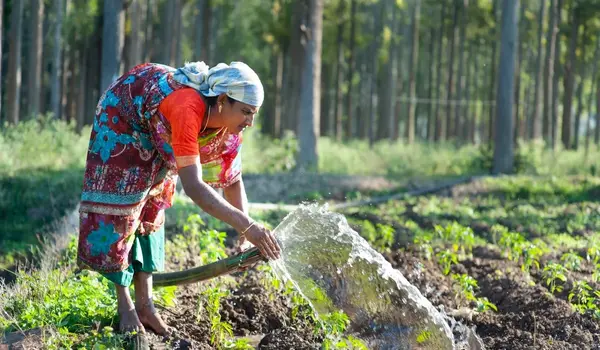Bulkagrochem is dedicated to supporting farmers in adopting sustainable practices that reduce their ecological footprint. As a leading provider of eco-friendly agricultural inputs, such as the Strong Larvicide Bioproduct and Trichoderma TC, we offer solutions designed to enhance farm productivity while minimizing environmental impact. Our commitment to sustainability helps farmers achieve their goals of reducing resource use and protecting ecosystems, ensuring that farming practices are both effective and environmentally responsible. Reduced Environmental Impact: Sustainable practices minimize pollution and degradation of natural resources, protecting ecosystems and biodiversity. Improved Soil Health: Methods like organic farming and the use of bio-pesticides enhance soil fertility and structure, leading to healthier crops and more resilient soil. Conservation of Water Resources: Techniques such as efficient irrigation and rainwater harvesting help conserve water and reduce the strain on local water supplies. Lower Greenhouse Gas Emissions: Sustainable farming practices reduce emissions by optimizing resource use and incorporating methods that lower carbon footprints. Increased Biodiversity: Practices like crop rotation and maintaining natural habitats support diverse ecosystems, benefiting both agricultural and wild species. Enhanced Crop Resilience: Using eco-friendly inputs and practices improves crop health and resilience to pests and diseases, reducing the need for chemical interventions. Cost Savings: Sustainable practices often lead to cost savings through efficient resource use, reduced input costs, and lower environmental remediation expenses. Consumer Appeal: Eco-friendly practices can enhance brand reputation and attract consumers who prioritize sustainability in their purchasing decisions. Adopt Conservation Tillage: Reducing or eliminating tillage helps preserve soil structure, reduce erosion, and improve water retention. This practice minimizes disturbance to soil organisms and helps sequester carbon. Implement Integrated Pest Management (IPM): Combining biological, cultural, and mechanical pest control methods reduces the reliance on chemical pesticides. IPM promotes the use of natural predators, resistant crop varieties, and targeted treatments, minimizing ecological impact. Utilize Cover Crops and Green Manures: Planting cover crops during off-seasons helps prevent soil erosion, improve soil fertility, and enhance moisture retention. Green manures contribute organic matter to the soil, promoting nutrient cycling and improving soil health. Optimize Water Use: Implementing efficient irrigation systems, such as drip or sprinkler irrigation, conserves water and reduces runoff. Practices like rainwater harvesting and using moisture sensors help ensure that water is used judiciously. Incorporate Organic and Bio-based Inputs: Using organic fertilizers, compost, and bio-pesticides reduces reliance on synthetic chemicals. Products like the Strong Larvicide Bioproduct and Trichoderma TC offer effective solutions for pest control and soil health while minimizing environmental impact. Minimizing the ecological footprint of farming is essential for promoting sustainability and protecting natural resources. At Bulkagrochem, we are dedicated to supporting farmers with eco-friendly solutions that enhance productivity while reducing environmental impact. By adopting conservation tillage, implementing integrated pest management, utilizing cover crops, optimizing water use, and incorporating organic inputs, farmers can significantly reduce their ecological footprint and contribute to a more sustainable agricultural system. These strategies not only benefit the environment but also improve farm efficiency, resilience, and long-term productivity. As the demand for sustainable practices grows, integrating these approaches will be crucial for achieving environmental and economic goals in modern agriculture. Introduction
Benefits of Sustainable Farming Practices
Main Strategies to Minimize the Ecological Footprint of Farming
Conclusion
Bulkagrochem
Submit your contact number & get exciting offer
Bulkagrochem.com
Bulk Purchase & Get Bulk Discount
Share your number to receive customized bulk pricing, availability updates, and exclusive offers directly via WhatsApp.

Recommended Products



